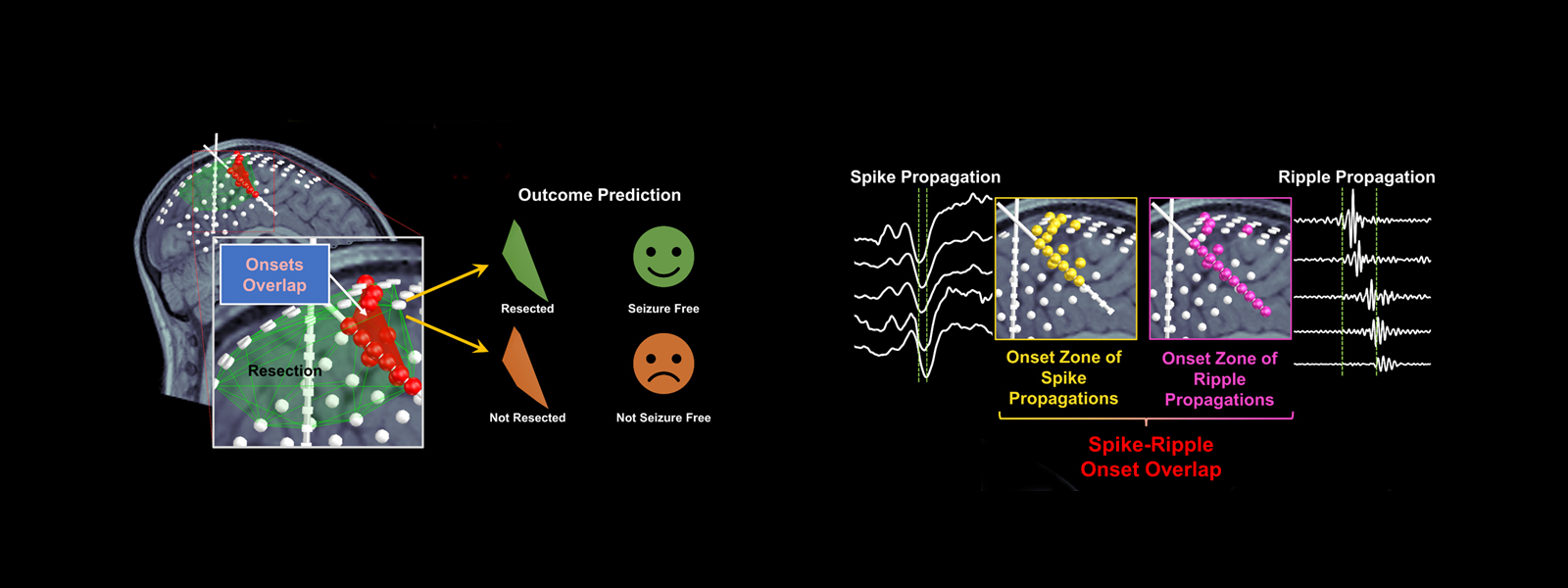
Neurosciences Research published in prestigious journal
Christos Papadelis, Ph.D., Assistant Vice President of Neurosciences Research Center, and his team recently published an article in the scientific journal, Annals of Clinical & Translational Neurology, entitled, “Overlap of spike and ripple propagation onset predicts surgical outcome in epilepsy.”
Saeed Jahromi, a Ph.D. student, served as first author in this work.
One out of three children with epilepsy are unable to control their seizures with drugs and suffer from drug-resistant epilepsy. For these patients, one of the best available treatments is brain surgery that achieves seizure freedom in ~60% of cases. The outcome of epilepsy surgery depends upon the precise localization of the brain area where seizures originate. For challenging cases, implantation of intracranial electrodes is often required in order to capture a seizure aiming to identify the brain region where seizures originate with high precision. However, it may take several days or even weeks for a seizure to occur. This increases the risk of infection and may cause surgical complications for the patient.
In this study, Dr. Papadelis and his team examined different known biomarkers of epilepsy that are detectable between seizures through the recordings of implanted electrodes. These biomarkers are sensitive in detecting the brain region where seizures start but they lack specificity, meaning they also occur in areas that shouldn’t be resected during surgery. By using advanced computational methods, Dr. Papadelis and his team found these known biomarkers propagate across large brain areas – from onset to areas of spread. The onsets of these propagating activities were spatially overlapping. Surgical resection of this overlapping onset was sufficient in order to achieve seizure freedom. This novel biomarker of epilepsy may improve the pre-surgical evaluation process and surgical outcome of children with drug-resistant epilepsy.
The study is funded by Dr. Papadelis' RO1 grant from the National Institute of Neurological Disorders and Stroke and is in collaboration with Boston Children's Hospital and Harvard Medical School.